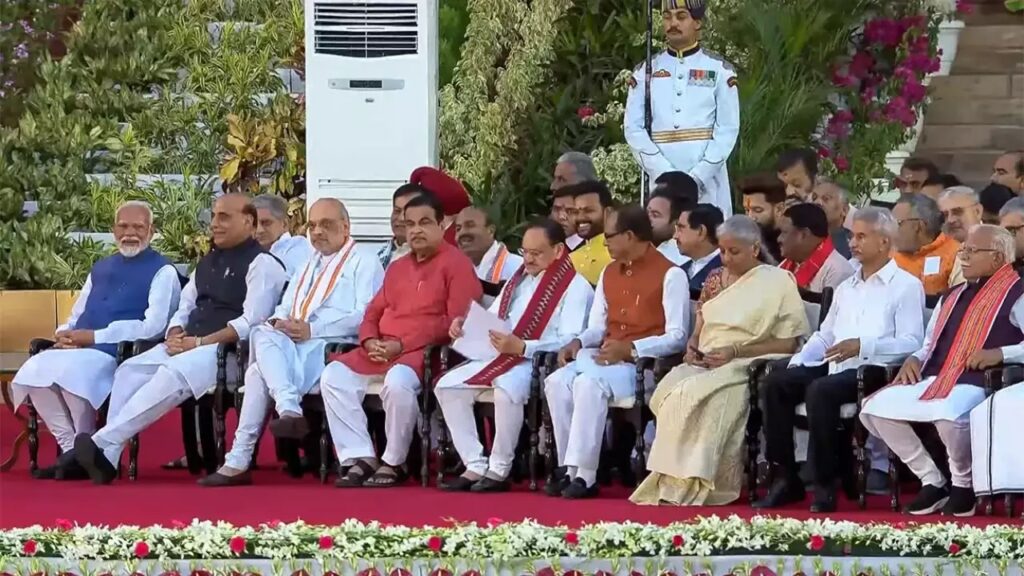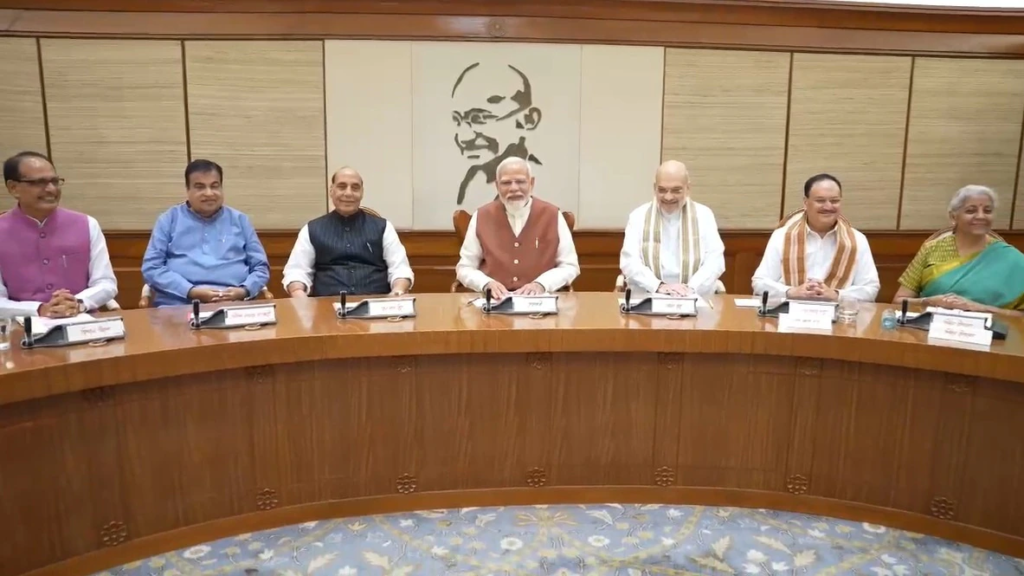This is the first time that Modi has led a true coalition government. Of the thirty Cabinet ministers under the PM’s leadership, four hail from Bihar. This is hardly surprising given that the BJP has three significant allies in that state: Chirag Paswan’s Lok Janshakti Party (Ram Vilas), former chief minister Jitan Ram Manjhi’s Hindustani Awam Morcha (Secular), and chief minister Nitish Kumar’s Janata Dal (United).
One Cabinet seat each has been awarded to Chandrababu Naidu’s Telugu Desam Party and HD Kumaraswamy’s Janata Dal (Secular), two allies in the southern states.Three former chief ministers—Shivraj Singh Chouhan of Madhya Pradesh, Manohar Lal Khattar of Haryana, and Kumaraswamy of Karnataka—are among the first-timers; Suresh Gopi, the BJP’s first Lok Sabha member from Kerala, has also passed muster.

Source: Kashmir Observer
More than forty ministers come from Scheduled Tribes, Scheduled Castes, and Other Backward Classes (OBCs). This is noteworthy given the poll setbacks the BJP saw in Uttar Pradesh, when the Samajwadi Party emerged victorious thanks to its outreach to the “PDA” (backward Pichhra), Dalit, and Alpsankhyak (minorities). The elections for Maharashtra and Haryana are scheduled for later this year, and their representation in the Council of Ministers is apparent.
Source: NDTV Profit
Following its appalling showing in the most recent Lok Sabha elections, the BJP is eager to stage a comeback in Punjab, as evidenced by the appointment of former Congress MP Ravneet Singh Bittu as a Minister of State. After contesting all 13 seats, the party came up empty, with Bittu losing in Ludhiana. It’s clear that the BJP wants to develop this relatively new leader in preparation for the Assembly elections in 2027. Overall, the BJP has managed to strike a careful balance.
What do you think about this? Comment below.

